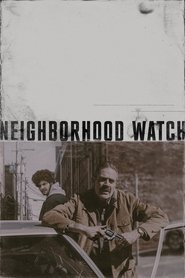Read Neighborhood Watch (2025) Movie
Watch Neighborhood Watch (2025) Spoiler

When a mentally ill young man thinks he witnesses an abduction and the police refuse to believe him, he reluctantly turns to his next door neighbor—a bitter, retired security guard—to help him find the missing woman.

- retired
## The Existential Nightmare of Neighborhood Watch: A Suburban Dystopia Disguised as Comedy
“Neighborhood Watch” (2012), ostensibly a sci-fi comedy, isn’t just about a group of suburban dads battling aliens. It's a dark, surprisingly insightful commentary on the suffocating monotony of suburban life and the desperate search for meaning within its carefully manicured lawns. While the film relies heavily on juvenile humor and over-the-top action, beneath the surface lies a disturbing reflection of societal anxieties and the perils of clinging to perceived normalcy.
The film hinges on the premise that the mundane existence of Franklin (Ben Stiller) is upended by the discovery of an alien invasion. He's the epitome of suburban dissatisfaction: a relentlessly upbeat Costco manager desperately seeking connection and purpose beyond his job and childless marriage. Joining the Neighborhood Watch, initially driven by the desire to catch a petty thief, becomes his lifeline, a means to prove his worth and inject excitement into his predictable routine.
However, the Watch itself is a microcosm of suburban dysfunction. Bob (Vince Vaughn), a protective father struggling to connect with his rebellious daughter, uses the group as an excuse to escape his domestic woes. Jamarcus (Jonah Hill), a volatile and socially awkward individual, craves belonging and validation, finding solace in the illusion of authority. And Curtis (Richard Ayoade), the recently divorced and enigmatic newcomer, provides a cynical outsider’s perspective, constantly questioning the group's actions and motivations.
The alien invasion serves as a catalyst, forcing these disparate individuals to confront not only extraterrestrial threats but also their own internal conflicts. Franklin, driven by his need to be a hero, becomes increasingly reckless and obsessed with uncovering the truth. Bob, grappling with his daughter’s burgeoning independence, channels his protective instincts into violently defending the neighborhood. Jamarcus, given a platform to exert power, descends into paranoia and suspicion.
The film’s true horror isn't the aliens themselves, but the realization that the suburban dream is often a gilded cage. The pristine lawns, identical houses, and enforced conformity create a breeding ground for anxieties and suppressed desires. The Neighborhood Watch, initially conceived as a force for good, becomes a vehicle for expressing these repressed frustrations. Their zealous pursuit of the aliens mirrors their desperate attempts to maintain the illusion of order and control in a world that feels increasingly chaotic.
The comedic violence, while often gratuitous, serves to highlight the absurdity of their situation. These ordinary men, armed with their anxieties and insecurities, are suddenly thrust into a world of alien technology and intergalactic conspiracy. Their attempts to navigate this new reality are often clumsy, misguided, and ultimately driven by a desperate need to reclaim a sense of agency.
Ultimately, “Neighborhood Watch” leaves the viewer contemplating the true cost of conformity. Is the pursuit of suburban bliss worth sacrificing individuality and authenticity? Is the illusion of safety worth the suppression of one's true self? The film doesn’t offer easy answers, but it does provide a darkly comedic lens through which to examine the anxieties and contradictions inherent in the pursuit of the American Dream, reminding us that sometimes, the most terrifying monsters lurk not in outer space, but within ourselves and the communities we create. The aliens may be defeated, but the existential unease lingers, a subtle reminder that the real battle is against the creeping banality of a life unexamined.